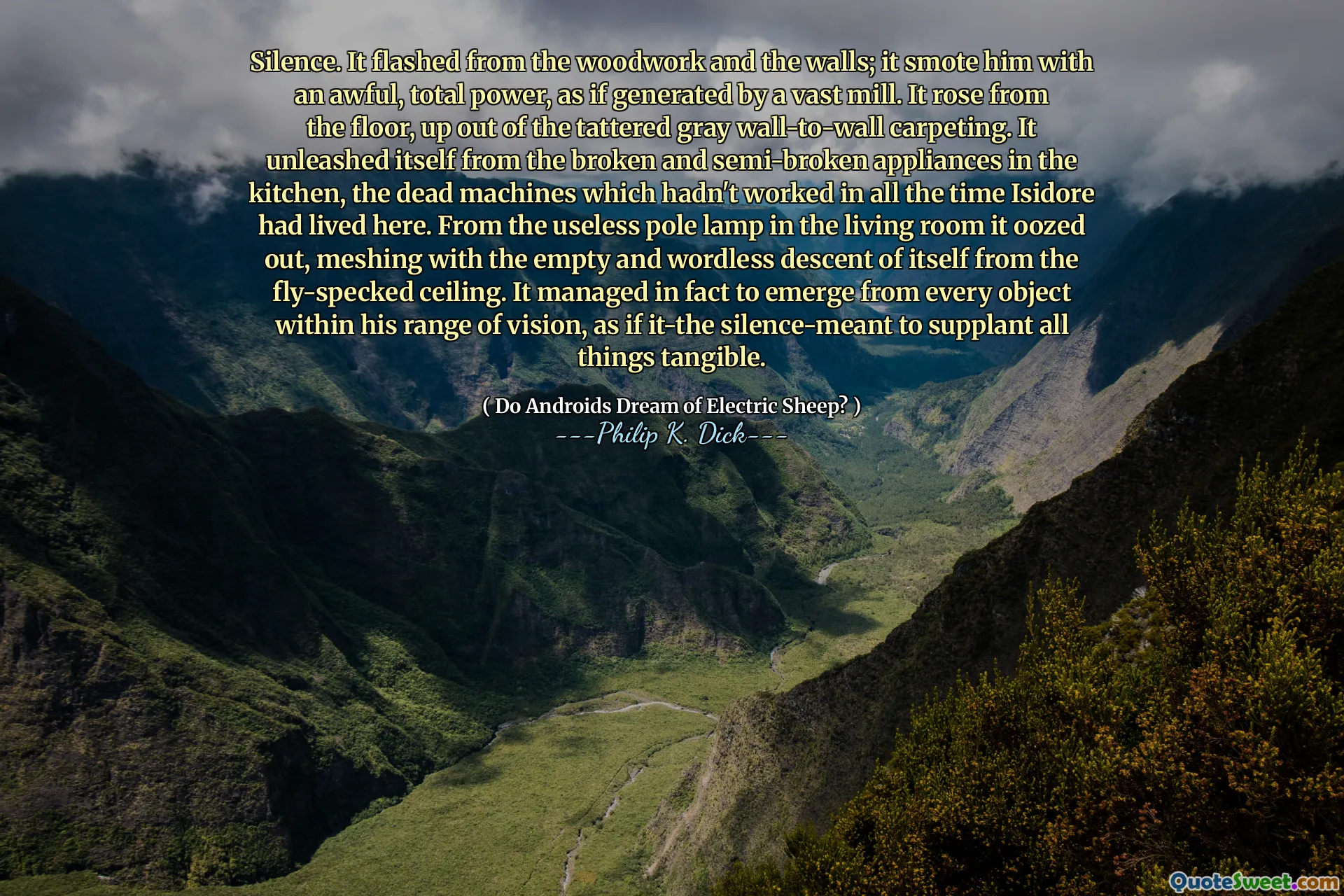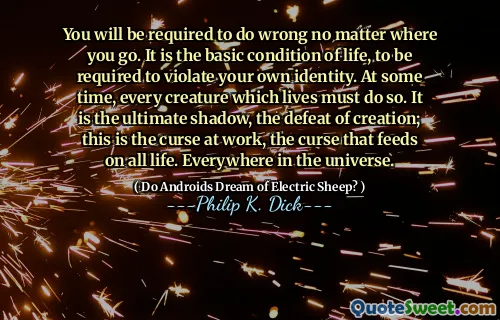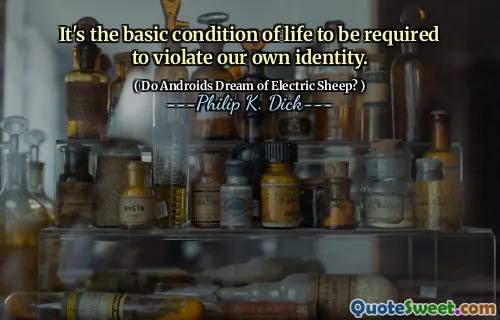
Silence. It flashed from the woodwork and the walls; it smote him with an awful, total power, as if generated by a vast mill. It rose from the floor, up out of the tattered gray wall-to-wall carpeting. It unleashed itself from the broken and semi-broken appliances in the kitchen, the dead machines which hadn't worked in all the time Isidore had lived here. From the useless pole lamp in the living room it oozed out, meshing with the empty and wordless descent of itself from the fly-specked ceiling. It managed in fact to emerge from every object within his range of vision, as if it-the silence-meant to supplant all things tangible.
The passage describes a profound sense of silence that envelops Isidore's environment. This silence is depicted as a powerful, almost tangible force that emanates from every object around him. It suggests a pervasive emptiness that transcends physical presence, resonating from the worn-out appliances, the dilapidated carpet, and the decaying walls. Each element in his surroundings contributes to this overwhelming silence, amplifying its impact on his consciousness.
This silence appears to symbolize the desolation and decay of Isidore's life and environment. It replaces the vibrancy of reality with a foreboding stillness that numbs the senses. The reference to broken machines and the lack of functionality highlights a world stripped of warmth and connection, where even the remnants of technology fail to bring life or sound. Overall, it captures the haunting alienation that defines Isidore's experience in a dystopian setting.











